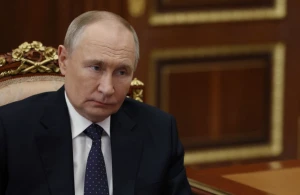
When evacuation is a death sentence: How the Red Cross failed to prevent genocide in Olenivka
Could the International Committee of the Red Cross have prevented the crime in Olenivka, and did everyone who agreed to “evacuate” Azovstal have the same understanding of the role that international organizations would play?
Millions of Ukrainians were moved by the epic tale of the Azovstal defenders, courageously carrying on against all odds. Eurovision winners and other celebrities added their voices to the growing clamor to save the lives of these Ukrainian heroes. Two days after the song contest, on May 16, what Ukrainian official sources called an "evacuation" began in Mariupol. Hundreds of Ukrainian soldiers were taken from Mariupol to Russian-occupied Novoazovsk and Olenivka. Deputy Prime Minister Iryna Vereshchuk said that the fighters evacuated from Azovstal would be exchanged for Russian prisoners of war (POW) when their condition stabilizes.
Some did manage to return from captivity. But not all. On July 29, Russian forces shelled the prison in Olenivka, where Ukrainian prisoners were being held, with heavy artillery. About 40 people were killed, and another 130 were injured. On the same day, Ukraine’s Security Service, Armed Forces, Defense Ministry and the parliamentary Human Rights Commissioner prepared a joint statement on the mass murder of Ukrainian POW, in which they asked the United Nations (UN) and International Committee of the Red Cross (ICRC) for guarantees regarding the lives, health and wellbeing of Ukrainian soldiers.
Espreso did some digging into these guarantees, to find out if indeed they existed - why they were not honored.
Azovstal defenders forced to surrender
It is the UN and ICRC guarantees regarding Ukrainian servicemen that members of Ukraine’s government have been so keen to emphasize since the day on which the Azovstal defenders were "evacuated", journalist Maryna Danylyuk-Yarmolayeva says.
"I would advise you to focus on the statements of officials. Because it was under the obligation of high-level officials that our prisoners decided to accept this order and took part in this so-called evacuation. There are, on record, clear video statements of Volodymyr Zelenskyy from May 16, in which he says that our prisoners decided (to evacuate from Azovstal) on UN and ICRC guarantees. This statement was publicly voiced, recorded by the mainstream media, and it is this statement that the relatives of those prisoners are now pressing for. Incidentally, this statement is mentioned in the joint letter of all of our security forces. I don't think that, say, the General Staff has anything to gain from lying," Danyliuk-Yarmolayeva says.
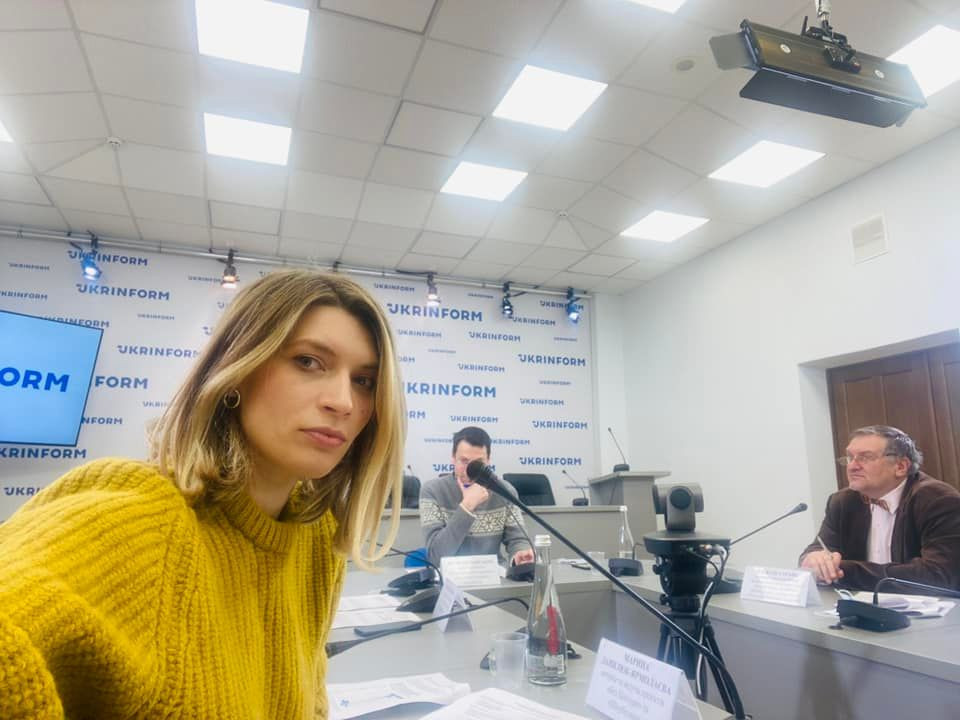
Photo: journalist Maryna Danyliuk-Yarmolayeva
Now, though, the relatives of these Ukrainian POW are trying to put pressure on the international organizations that, apparently, acted as guarantors. This should have been done earlier, Danyliuk-Yarmolaeva believes. However, Ukrainian government spokespeople, in particular from the Defense Ministry, have so far obstructed this.
"I can already name a clear name, because it has already been voiced several times by the wives and relatives of the prisoners - this is Hanna Malyar. She personally asked all the relatives of the prisoners not to inflame the situation, to refrain from publicity, for example not to give interviews to journalists, not to approach independent human rights organizations, because it is ‘out of time’ and they have everything under control. However, after the mass murder in Olenivka, relatives saw that, clearly, everything is not under control," says Danyliuk-Yarmolayeva.
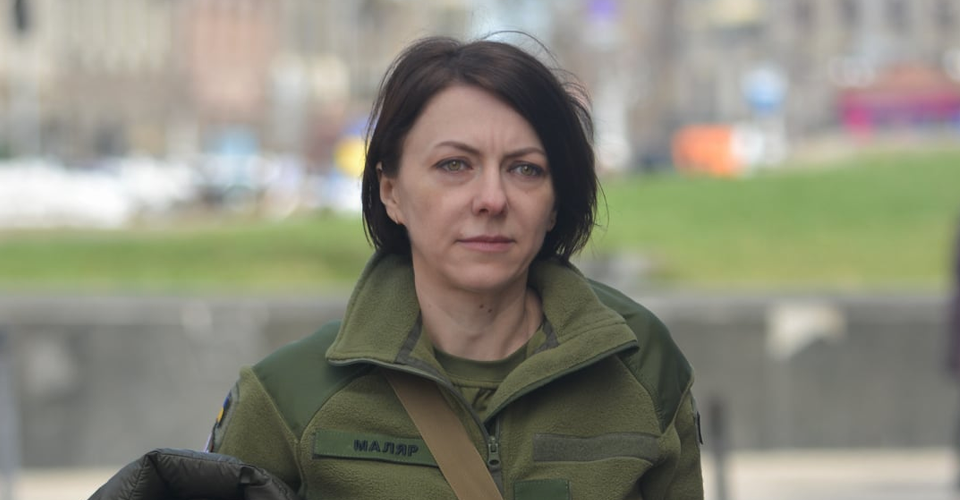
Photo: Ukraine’s Deputy Defense Minister Hanna Malyar
On July 5, ICRC’s spokesperson in Ukraine Oleksandr Vlasenko said that the ICRC is in contact with the Azovstal defenders being held as POW. However, he did not answer the question of whether representatives of the POW organization would be able to visit.
"The ICRC publicly admitted that, during these few months when the captured defenders of Mariupol (including Azov residents) were taken to Olenivka, they did not have direct access to them. According to my data, representatives of the French Red Cross had the last access to Olenivka until the end of May. And they had literally 10 days there to notify their relatives that their loved ones were alive. When this delegation left for another mission, there was no longer any contact with Olenivka," Danylyuk-Yarmolayeva notes.
Guarantees that no one has seen
International organizations did not have any leverage that they could use to guarantee the Azovstal defenders’ safety, Pavlo Rozenko, vice president of the Ukrainian Red Cross, says. His organization is not a representative office or branch of the ICRC. The Ukrainian Red Cross is a separate structure, although it does have joint projects with "internationals".
Pavlo Rozenko considers it inappropriate to accuse the UN and the ICRC of not complying with guarantees regarding the defenders of Mariupol - no one can guarantee life, health and normal conditions in a prison that is located in a territory they do not control. Moreover, Rozenko told Espreso that no one has made clear exactly what and how international organizations were supposed to guarantee.
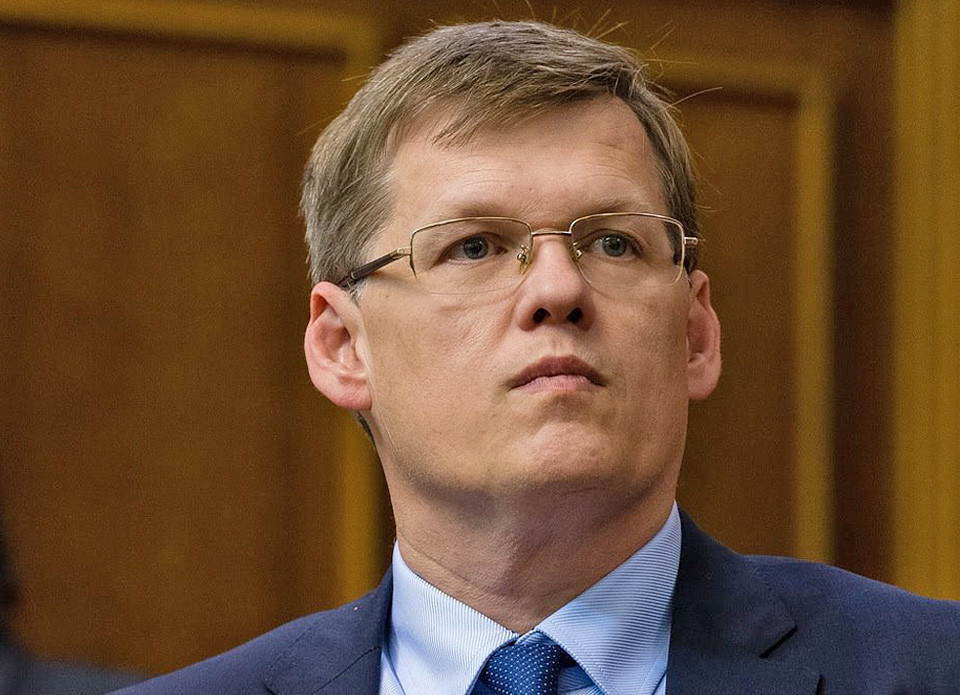
Photo: Vice President of the Ukrainian Red Cross Pavlo Rozenko
"What does the word ‘guarantees’ mean? Essentially, it means the parties’ obligations to perform (or refrain from) particular actions for a period of time. You can say anything on TV, tell beautiful stories and add any kind of political emphasis. But guarantees are, primarily, a document outlining the respective parties’ obligations. And Ukrainian society today has no information about whether the UN and the ICRC actually undertook any obligations. We hear words - mainly spoken by politicians or experts who are close to one or other political camp. I would not like to engage in politics, but above all to see facts," says Rozenko.
As an example, he cites the "grain agreements" in Istanbul, where the parties reached an agreement and made the signed agreements public.
"UN Secretary General Guterres flew to Istanbul, and there was an independent mediator - President Erdogan of Turkey. Ukraine and Russia signed a public document that clearly defined who and what obligations are assumed, as well as who guarantees the fulfillment of these obligations. Moreover, then the document about these grain agreements and these guarantees was made public in the media. Now we see that some parties fulfill the guarantees, some do not - it is clear against whom claims can be made," explains the vice-president of the Ukrainian Red Cross.
On the other hand, with the guarantees for the Azov defenders, Rozenko says, officials do not share any of the relevant details, instead limiting themselves to general phrases about guarantees.
"Even when someone says that 'they undertook guarantees', questions immediately arise. What guarantees? What do they comprise? What exactly was the UN or the ICRC supposed to do to ensure the fulfillment of these guarantees? And I just get the impression that someone just wants (knowingly or unknowingly) to clear Russia of involvement in this whole story. Because in fact, the Geneva Convention clearly states and defines who guarantees life, health and proper living conditions for prisoners of war. It is not the UN, not the Red Cross or other international organizations. The responsibility rests solely with the party that captured these military personnel. No third party, whoever it may be, can guarantee life, health and normal conditions of imprisonment in a territory it does not control, to which international organizations do not have access," Pavlo Rozenko emphasized.
The Red Cross washed their hands
The assumptions made by people in the Red Cross movement were confirmed by the International Committee. On August 3, the ICRC issued a statement in which it emphasized that it did not undertake any security guarantees for Ukrainian prisoners of war.
"As a neutral mediator, the ICRC facilitated the safe exit of combatants from the Azovstal plant in coordination with the parties to the conflict. We did not guarantee the safety of prisoners of war who fell into the hands of the enemy, because it was not within our power. We made this clear to the parties in advance. The parties themselves are obliged to ensure the protection of prisoners of war from acts of violence, intimidation and public curiosity, as well as from the consequences of military operations. Only the parties to the conflict can ultimately ensure the safety of prisoners of war," the statement said.
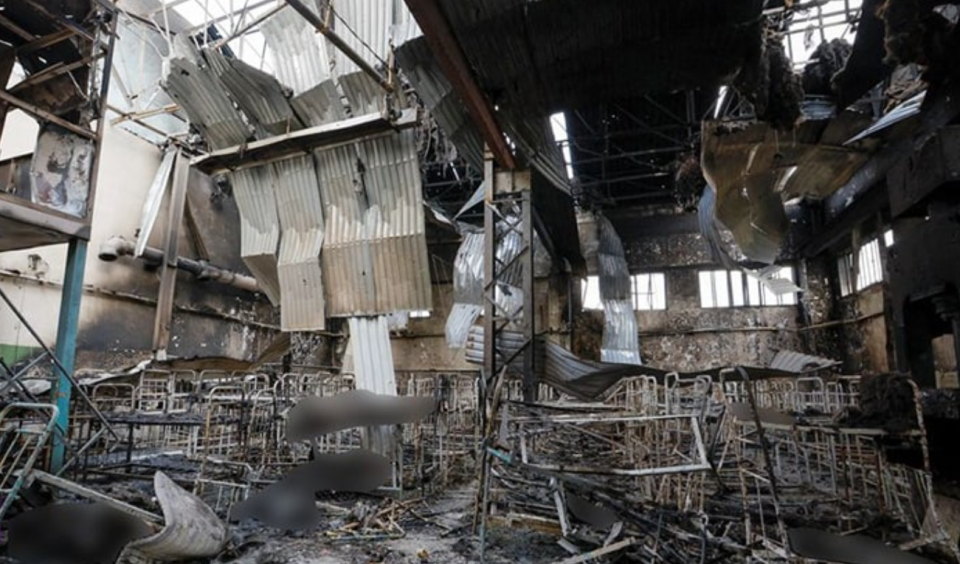
Ruins of the prison in Olenivka, where Ukrainian prisoners were held, after Russian shelling
In addition, the ICRC admitted that, with the exception of a short visit, they did not have access to the prison colony in Olenivka.
"We learned of the alleged attack on Friday, July 29, after which we immediately requested access to the Olenivka Correctional Colony and all places where the victims are being treated or where bodies may have been transferred, as well as to institutions where other prisoners of war may have been. We also offered to support the evacuation of the wounded and provide medical equipment. So far we have not been able to access the POWs affected by the attack, and we do not have security guarantees to carry out this visit. Our offer to donate materials also remains unanswered," said the ICRC in a statement.
What else is wrong with the Red Cross?
The first wave of Ukrainian indignation arose at the beginning of Russia’s full-scale invasion, when the head of the ICRC, Peter Maurer, met with Russian Foreign Minister Lavrov, promising to open an additional office in Rostov. However, this meeting was in line with the organization's principles, which include impartiality, independence, and neutrality. The Red Cross are so eager for neutrality that they are ready to cooperate even with ISIS, even with Hitler's Germany. Thus, during the Second World War, the Third Reich, with the help of the ICRC, tried to create a positive image of the Nazi concentration camps. In 1944, ICRC delegate Maurice Rossel visited the Theresienstadt concentration camp and reported in writing about the "almost normal stay of Jews" in the camp.
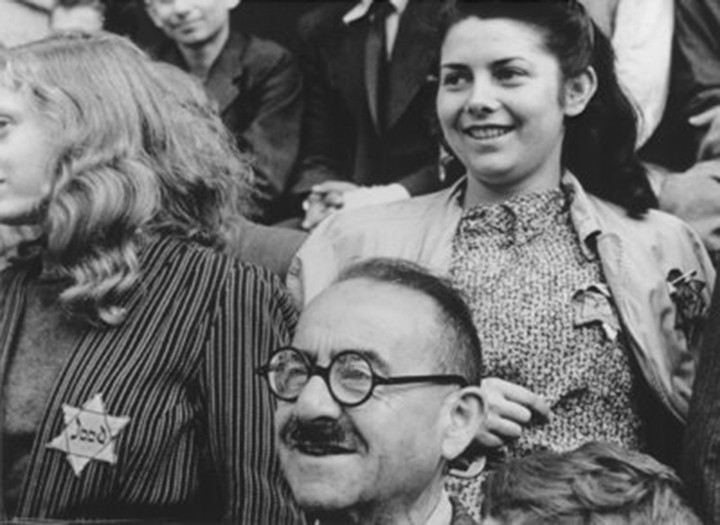
Photo: screenshot from a propaganda film about the Theresienstadt concentration camp, source: United States Holocaust Memorial Museum
However, this desire for all-encompassing neutrality is fundamentally flawed, says journalist Maryna Danylyuk-Yarmolayeva.
"For me, the ICRC statement was very significant when it was already known that the Russians were deporting Ukrainians from Mariupol to the Rostov ghetto. Then the International Committee of the Red Cross issued a statement saying that they are creating conditions for Ukrainians here. It turns out that they financed ‘filtration camps’ within Russia. This is absolute savagery. I remember there was a serious scandal and the ICRC found no other way out than to delete the statement from its website literally hours after it was made public. But people who work even in the Ukrainian ICRC confirmed that such a statement existed," emphasized the journalist.
The ICRC has refuted these accusations.
"We have never participated in any alleged forced evacuations of civilians to Russia from Mariupol or any other Ukrainian city. The protection of all civilians remains our priority. The ICRC does not participate in the alleged filtering of Ukrainians to Russia," the the April ICRC report said. However, they immediately recognized close cooperation with the Russian Red Cross, which was engaged in the forcible deportation of Ukrainians from the occupied territories.
"If in the absolute majority of countries in the world, national Red Crosses are independent public structures primarily from their governments, then in Russia the situation is completely different. The Russian Red Cross is actually a governmental and pro-government structure that operates on the ideological basis of the Putin regime, fulfilling the orders of the Russian government," says Pavlo Rozenko, Vice President of the Ukrainian Red Cross.
He says that the Ukrainian Red Cross records violations of the principles of the Red Cross movement in the Russian Federation: involvement in deporting Ukrainians, distributing pro-Russian, pro-war propaganda to deportees, etc. But at the same time he admits that no international organization has actual influence on the Russian Red Cross.
What about the UN?
The situation is also difficult when it comes to UN representatives. The head of the UN human rights monitoring mission, Matilda Bogner, has repeatedly conceded that she does not have access to Olenivka, and that they receive all information from the Russian side and the puppet "republics".
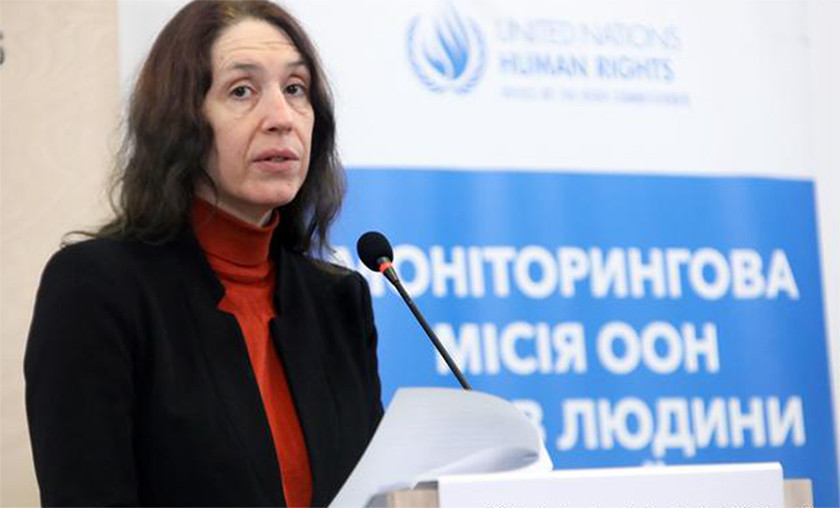
Photo: Head of the UN Human Rights Monitoring Mission Matilda Bogner
"Even a cursory look at publicly accessible sources shows that Ms. Bogner is in very regular communication with the so-called ‘DPR ombudsman’ Daria Moroz, and that is where all her contacts end. That is, she receives all information about our prisoners from a local party backed and aligned with the Russian occupation. This initial data is no indication of what is actually happening there with our prisoners and what kind of torture they endure," Danyliuk-Yarmolaeva says.
Matilda Bogner's social circle also likely influences the reports and statements of the entire mission. So when a video was made public showing a Ukrainian prisoner of war being tortured with a razor knife, and the monitoring mission issued an official statement that failed to even recognize the perpetrator as a Russian soldier. Instead, in the very next paragraph, the UN representatives accuse Ukrainian forces of torturing Russians.
Is it possible to abandon international intermediaries?
The ICRC’s efforts to distance themselves from the Olenivka crime came as no surprise to Maryna Danyliuk-Yarmolaeva.
"The situation is such that the mass shooting of Ukrainian prisoners of war in Olenivka is a very sensitive topic that exposes all these international organizations in a very negative light. Therefore, they will certainly soften this blow somehow. Most likely, less donations will come to them now. And we understand that the topic of Ukraine and the Ukrainian military conflict is a topic that is quite significant for the budget of the ICRC," the journalist emphasizes.
She believes that people who want to financially help the Ukrainian people should donate money not to the ICRC, which is involved in corruption scandals, but to Ukrainian charitable foundations and volunteer organizations. Moreover, according to official data, more than half of the expenses of the Red Cross are expenses for own salaries.
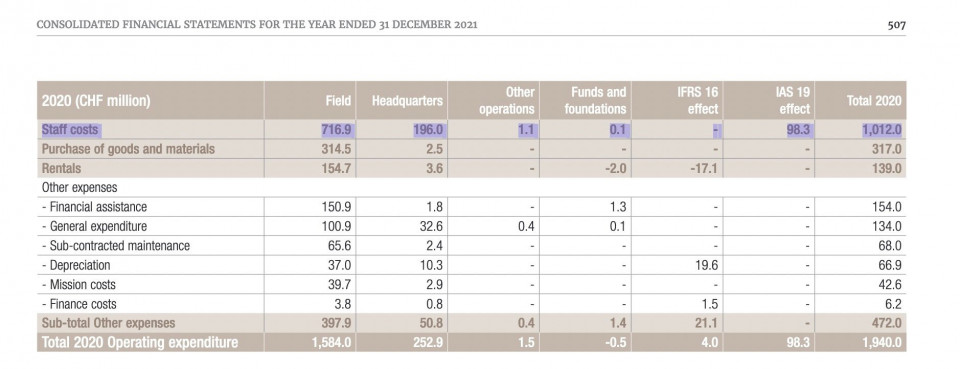
"I called on our numerous communities of Ukrainian diaspora who work in international companies and with whom their colleagues consulted on where it is better to transfer money - do not donate to the ICRC! Unfortunately, due to the image of Ukraine as a corrupt state, many donors doubt the expediency of sending funds to help to some powerful Ukrainian volunteer organizations such as "Help the Front", the Shelter Fund or other organizations that support children and mothers forced to leave their homes, injured. They traditionally donate to the Red Cross, because there is distrust - oh, we will donate to this organization, and we don't know them. It's better to go to the Red Cross. But I know for sure that Ukrainians who live all over the world and collect these funds are already gradually convincing donors to donate to separate funds that have proven that they are normal - the reports showed, conduct their accounting honestly and can tell where the funds or humanitarian aid went," the journalist says.
Instead, Pavlo Rozenko believes that such an initiative will not have any impact on the activities of the ICRC.
"I think that the International Committee of the Red Cross spends much more in Ukraine and invests money here than it collects donations in its coffers. Especially since the majority of Ukrainians who want to help the Red Cross donate not to them, but to us - the Ukrainian Red Cross".
Danylyuk-Yarmolayeva also admits that it is impossible to completely abandon international mediators.
"The ICRC must be pushed, everyone must be pushed, because now there is an issue with the inclusion of prisoners in the lists. Unfortunately, I have information that the people who were captured in Mariupol back in April have not yet been included in the lists, for example our marines. This is a highly irregular situation. Only the mass murder in Olenivka prompted the parents to look for ways out in a new way. Yes, the ICRC is very underperforming. But we do not have many ways out and it is very important to us that the stories of all 8,000 prisoners (I'm talking about civilians and prisoners of war together) were not lost, so that these people were recorded in the lists. Therefore, please also contact the International Committee of the Red Cross. After all, no story of a Ukrainian prisoner should be lost," the journalist emphasized.
- News









